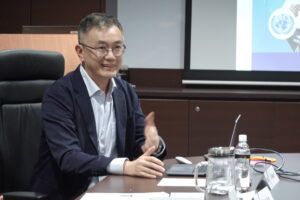Abstract
Token troop contributions — tiny military deployments within much larger coalitions — have become the most common form of state participation in United Nations peacekeeping operations over the last several decades. While almost every country is moving towards token contributions, China is bucking the trend. As of 2018, China has deployed a substantial number of troops to every large UN mission it participated in. Why is China doubling down on substantial troop contributions while almost every other country, including its most comparable peer ones, is going small? Leveraging evidence from official documents, case studies, and a new global dataset, this paper shows that non-token contributions have become a preferred mode of participation for China as it better aligns with Beijing’s broader foreign policy goal of cultivating and maintaining its identity as a responsible stakeholder in global affairs. These findings shed new light on how China’s global status priorities have shaped its evolving participation in UN peacekeeping and offer ideas for the international community on ways to engage the world’s second largest economy more productively in global governance.
About the Speaker
 Xiaojun Li is Associate Professor of Political Science at NYU Shanghai and University of British Columbia (on leave). His recent books include Token Forces: How Tiny Troop Deployments became Ubiquitous in UN Peacekeeping (Cambridge University Press 2022), Fragmenting Globalization: The Politics of Preferential Trade Liberalization in China and the United States (University of Michigan Press 2021), and How China Sees the World: Insights from China’s International Relations Scholars (Palgrave 2019). He holds a PhD in political science from Stanford University and has held visiting positions at Harvard University’s Fairbank Center for Chinese Studies, the East-West Center, and the ISEAS–Yusof Ishak Institute in Singapore as its inaugural Wang Gungwu Fellow.
Xiaojun Li is Associate Professor of Political Science at NYU Shanghai and University of British Columbia (on leave). His recent books include Token Forces: How Tiny Troop Deployments became Ubiquitous in UN Peacekeeping (Cambridge University Press 2022), Fragmenting Globalization: The Politics of Preferential Trade Liberalization in China and the United States (University of Michigan Press 2021), and How China Sees the World: Insights from China’s International Relations Scholars (Palgrave 2019). He holds a PhD in political science from Stanford University and has held visiting positions at Harvard University’s Fairbank Center for Chinese Studies, the East-West Center, and the ISEAS–Yusof Ishak Institute in Singapore as its inaugural Wang Gungwu Fellow.



 Add to Google calendar
Add to Google calendar
 Add to Outlook calendar
Add to Outlook calendar

